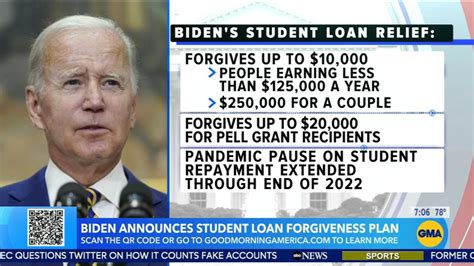The fate of President Joe Biden’s federal student loan forgiveness program, promising up to $20,000 of debt relief for millions of borrowers, hangs in the balance with the Supreme Court. The justices recently heard arguments in two cases related to the forgiveness program, and a decision is expected by late June or early July.
Challenges and Legal Battles
The Biden administration faced various legal challenges over the student loan forgiveness program. Lawsuits brought by Republican-led states and individual borrowers have made their way to the Supreme Court. The plaintiffs argue that the Department of Education is exceeding its authority. One lawsuit contends that providing targeted relief violates federal laws governing regulatory processes.
Eligibility Criteria
If the program proceeds, not all student loan borrowers will qualify for debt relief. Only federally held student loans are eligible, excluding private loans. Additionally, high-income earners are generally excluded from receiving forgiveness. Those making less than $125,000 annually could see up to $10,000 forgiven; eligibility extends to those who received a federal Pell grant while in college for up to $20,000 forgiveness.
Application Process and Timeline
The application process was officially launched on October 17 after a beta testing period. However, no debt has been canceled yet pending court decisions. Even if approved later this year, relief may not be granted until at least June when a Supreme Court ruling is anticipated.
Federal Loans Eligibility
Various federal student loans qualify for potential relief under Biden’s plan if implemented successfully. Federal Direct Loans are eligible along with certain other categories specified by the Department of Education.
Income Thresholds and Tax Implications
Eligibility criteria include adjusted gross income for either tax year 2020 or 2021 based on IRS filings. Borrowers won’t incur federal income tax on forgiven amounts due to legislative provisions; however state taxes may apply in some cases.
Future Repayment Plans
Amid discussions about debt cancellation, Biden also proposed new repayment plans aiming for more manageable payments capped at 5% of discretionary income instead of the current 10%. This plan would additionally cover unpaid monthly interest charges.
As students and borrowers await further updates on this evolving initiative amid legal battles and administrative processes at play – one thing remains certain: many hope for financial reprieve amidst ongoing economic uncertainties caused by rising education costs.

